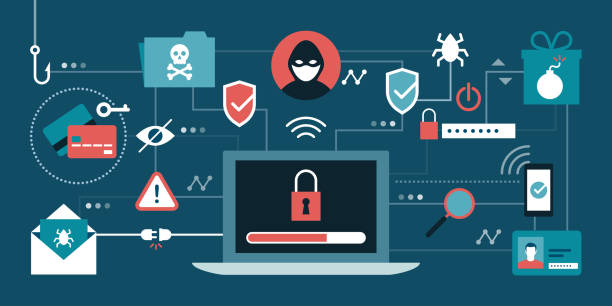Decoding the Threat Landscape: Understanding the Different Types of Computer Viruses**

Strong 8k brings an ultra-HD IPTV experience to your living room and your pocket.
Introduction
In today's digital age, where technology permeates every aspect of our lives, the prevalence of cyber threats continues to rise. Among these threats, computer viruses stand out as one of the most pervasive and damaging forms of malware. Understanding the various types of computer viruses is crucial for bolstering our defenses against cyber-attacks and safeguarding our digital assets. In this comprehensive exploration, we'll delve into the intricate world of computer viruses, exploring their different categories and the measures to combat them effectively.
Boot Sector Viruses
Boot sector viruses represent a persistent threat to computer systems, infecting the master boot record (MBR) or volume boot record (VBR) of storage devices. These viruses typically propagate through infected storage media, such as USB drives or floppy disks. Once activated, they can wreak havoc by corrupting critical system files and rendering the system inoperable. Prevention and removal of boot sector viruses often involve scanning and repairing the infected boot records using specialized antivirus tools.
File Infector Viruses
File infector viruses are notorious for their ability to attach themselves to executable files, spreading when these files are executed. Examples of file infector viruses include the infamous "Melissa" and "CIH" viruses, which caused widespread damage to systems worldwide. Detecting and mitigating file infector viruses require robust antivirus software capable of identifying and quarantining infected files promptly.
Macro Viruses
Macro viruses exploit macro functionalities in applications like Microsoft Word and Excel to propagate and execute malicious code. These viruses often masquerade as legitimate documents, tricking users into enabling macros and inadvertently activating the malicious payload. Vigilance and caution are essential when handling documents from unknown or untrusted sources to mitigate the risk of macro virus infections.
Polymorphic Viruses
Polymorphic viruses pose a significant challenge to cybersecurity due to their ability to mutate and evade detection by antivirus software. These viruses continuously modify their code, making it difficult for traditional signature-based detection methods to identify them accurately. Combatting polymorphic viruses requires employing advanced heuristic analysis and behavior-based detection techniques to detect and neutralize emerging threats effectively.
Worms
Unlike traditional viruses, worms are self-replicating malware that spread over networks without requiring user intervention. Notable worm outbreaks, such as the "ILOVEYOU" and "Conficker" worms, have caused widespread disruption and financial losses. Protecting against worm attacks necessitates implementing robust network security measures, including firewalls, intrusion detection systems, and regular software patching to address known vulnerabilities.
Trojan Horses
Trojan horses disguise themselves as legitimate programs or files to trick users into executing them, allowing cybercriminals to gain unauthorized access to systems or steal sensitive information. Variants like the "Webcord Virus" exemplify the dangers posed by Trojan horse infections, highlighting the need for comprehensive endpoint protection and user awareness training to prevent inadvertent installations.
Ransomware
Ransomware has emerged as a prevalent and financially motivated form of malware, encrypting files and demanding payment for decryption. High-profile ransomware attacks, such as "WannaCry" and "Ryuk," have targeted organizations across various sectors, causing significant financial and reputational damage. Mitigating the risk of ransomware requires implementing robust backup and recovery strategies, alongside proactive measures to prevent initial infections through email filtering and endpoint security solutions.
Conclusion
As the threat landscape continues to evolve, understanding the different types of computer viruses is paramount for organizations and individuals alike. By staying informed about emerging threats and implementing different types of cyber security measures, we can effectively defend against malicious actors and safeguard our digital assets. Together, let's bolster our defenses and navigate the digital world with confidence and resilience.
Note: IndiBlogHub features both user-submitted and editorial content. We do not verify third-party contributions. Read our Disclaimer and Privacy Policyfor details.


